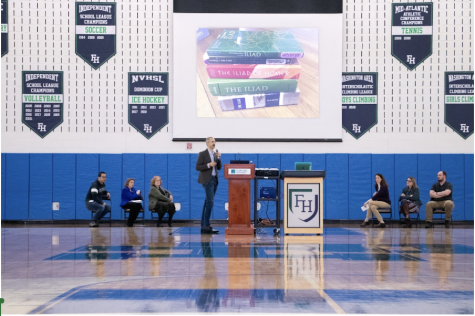The Neuroscience Behind “happihealthy” with Louisa Nicola

November 18, 2020
Hi everyone, welcome back! The driving factor behind the foundation of happihealthy has been what occurs within the body to cause certain emotions and biological effects. Now, what controls the entire body? The brain! Therefore, my research has always stemmed from an interest in neuroscience so I thought I’d bring this article back to the roots of happihealthy to discuss the neuroscience behind happiness.
Listening to podcasts is an excellent way for me to learn more so I turned to “The Neuroscience of Happiness: How to be Happy.” by Louisa Nicola, Director and Head Neuroscientist of Neuro Athletics, studying Alzheimer’s and TBI, Traumatic Brain Injury, in NFL players. She has a podcast channel on Spotify called “The Neuro Experience” and reads or consults with other experts in her field. The research in this article, and her podcast, stems from UCLA neuroscience researcher, Alex Cobb.
All of our happiness, or unhappiness, stems from our thoughts. When we force ourselves to think happy thoughts, it makes our brain think in a happier fashion. Negative thoughts suck more of our mental energy, so by thinking positive thoughts, it helps you feel like you have more brain power throughout the day. There are five crucial ways our brain controls our happiness and they all relay our thoughts.
First of all, gratitude creates happiness because it boosts levels of serotonin and dopamine. Gratitude can be thought of as an emotion, virtue, personality trait, mood, and coping response. It is having and expressing thankfulness and is “a way of life.” Studies have shown that people who write gratitude letters have significantly better mental states. I challenge you to start during this Thanksgiving season and write down three things you are grateful for each day. Just pick up a piece of paper and start by writing, and you’ll be surprised at how long the list becomes!
Secondly, recognize that your negative feelings can produce positive effects: don’t just brush emotions under the rug! Acknowledge the feeling and then, conscientiously, think of a positive. Have you ever started to let a negative thought enter your head and then a few minutes later, you realize you’ve gone down the rabbit hole? This is because our brain looks for the easier option and this option is generally suffering because this is what our brains are accustomed to. At this point, chances are you’re so mentally fatigued that you can’t think of a positive to get yourself out of the said hole, so you keep spiraling. “Catch those negative emotions” and label them for yourself, and for others (fun fact: the FBI actually does this during interrogations.) Try to be present enough in order to pick up on your own negative thoughts, and on others’. Remember, words are powerful regulators of emotional processing, so immediately turn those negative words into positive affirmations.
Third, making a good enough decision can make you happier. We live in a world where perfection is expected and strived for. You need to recognize when to make a “good enough” decision because trying to make constantly perfect decisions will stress you out even more. Your brain produces cortisol when you make decisions, so make more small, “good enough” decisions instead of few, perfect ones.
Fourth, if you know anything about me, you know that I strive to help others. “Helping people makes both parties happy” because it triggers a release of dopamine, serotonin, endorphins, and oxytocin (the happy hormones). Self-help author Tony Robbins has said, “the secret of living is giving,” and it doesn’t have to be financial! Just by opening the door for someone, checking in on a friend at the end of the day, or asking your mom if she needs help with dinner are all small acts of kindness that can go a long way.
Lastly, physical touch releases happy chemicals. Humans actually react to social exclusion in the same way as we chemically respond to physical pain. I know it can be difficult to support your friends in this way during the pandemic, but try to give your siblings and parents a hug today! Giving someone a hug lets them release oxytocin. And did I even have to mention the benefits of petting an animal? Endorphins, oxytocin, and dopamine are all released after petting a dog!
I hope you learned something today and maybe this even sparked your interest in neuroscience too. Have a happihealthy day!







